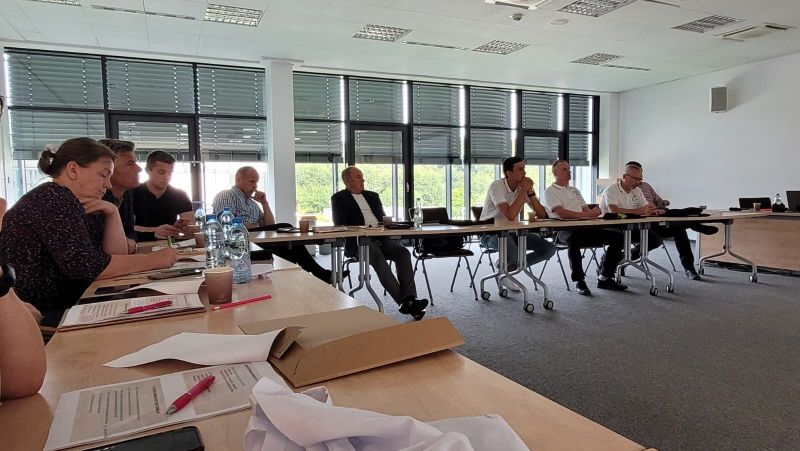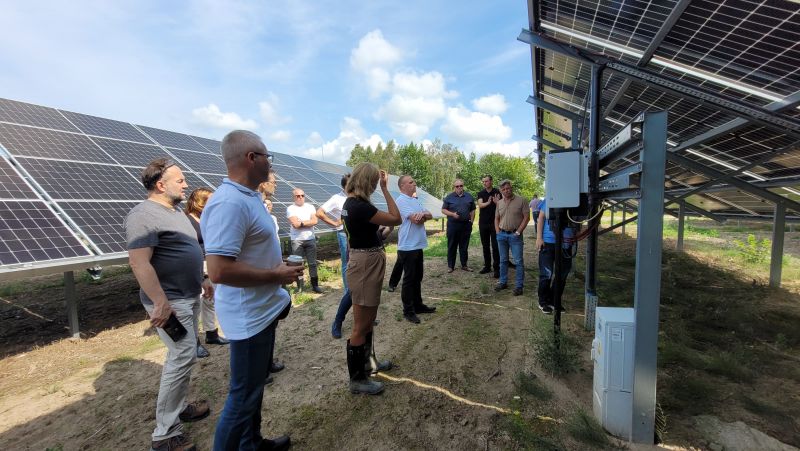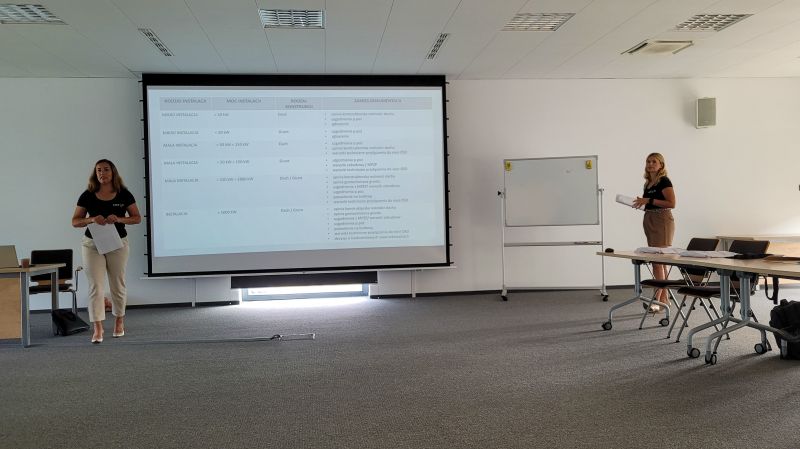
Decarbonisation is one of the key goals of the LOCALISED project, which aims to close the information gap between national plans and local needs for energy transition and climate change adaptation. It is crucial for local governments, citizens and companies to understand and effectively use the tools that support these processes.
An example of decarbonisation efforts is the construction of photovoltaic farms that enable clean energy production. A study visit by Obszar Metropolitalny Gdańsk Gdynia Sopot (OMGGS) local government representatives to the Slupsk Technology Incubator was an excellent opportunity to explore this topic. They were shown the step-by-step process of setting up a photovoltaic farm – from analyzing the location, to developing the technical concept, to selecting a contractor and monitoring the efficiency of the installation.
The visit provided the local authorities with valuable insights into investments in renewable energy sources. Through direct contact with experts, participants better understood the technical and administrative aspects of such projects. This experience fits in with the goals of the LOCALISED project, supporting local governments in their efforts to decarbonise and achieve the European Green Deal. During the visit, while talking to participants, the aims and objectives of the LOCALISED project was also presented, promoting it to local authorities.
A photovoltaic farm is an investment that brings great opportunities, but also some challenges. It allows a significant reduction in CO2 emissions and energy costs, but requires careful planning, consideration of changing regulations and a lengthy process of obtaining the necessary documentation.
During the visit, participants learned about different models of energy communities and technical aspects, such as the selection of photovoltaic panels and monitoring systems. Attention was drawn to the need for constant supervision of processes at the farm and regular technical inspections to ensure optimal performance.






Recent Comments